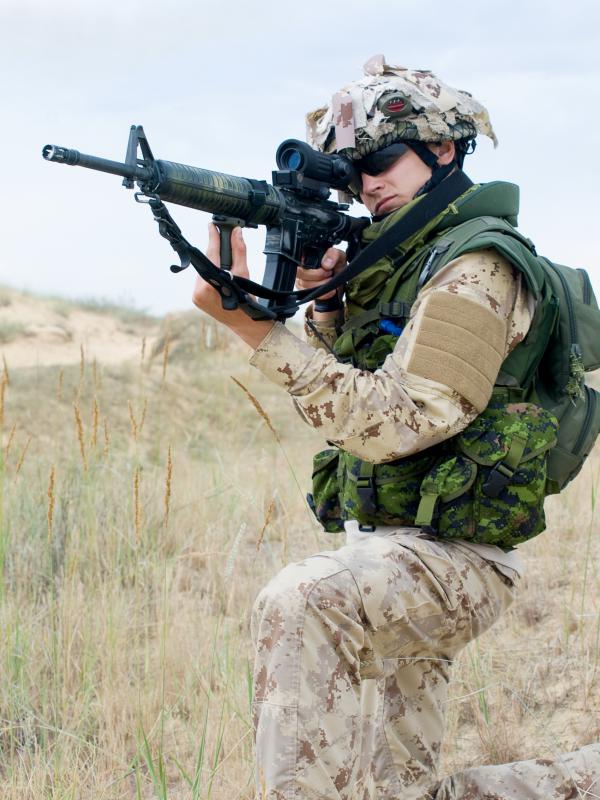At PracticalAdultInsights, we're committed to delivering accurate, trustworthy information. Our expert-authored content is rigorously fact-checked and sourced from credible authorities. Discover how we uphold the highest standards in providing you with reliable knowledge.
What Does a Military Advisor Do?
A military advisor provides support to allied nations who need assistance with training and combat operations. Advisors travel overseas to meet with government representatives, develop an appropriate plan, and help soldiers on the ground. This work requires extensive military experience with distinction along with completion of a training course that provides information about how to provide advice to allies while considering issues like cultural differences and limited funds for training and other operations.
Many nations with cordial relationships exchange advisors with each other. Experienced countries with large militaries may help smaller allies with specific military issues or the development of a more effective, powerful, and productive military. Nations with specific combat experience in a given region can provide support during wartime, police actions, and other events, as can countries with knowledge of similar regions and terrains. Advisors are treated as key members of planning and implementation teams.

One part of a military advisor's work can include assistance with training programs. A nation may request a military advisor to help it modernize, improve training opportunities, or expand the scope of its military. This individual reviews current methods, meets with personnel to learn more about their training, and helps senior officers and officials develop a better training program. This can include a wide range of ideas, from recommending and implementing tighter physical fitness standards to developing curricula for courses at military colleges.

Nations can also call upon a military advisor for help with a specific campaign. The advisor typically arrives on the ground as early as possible to take part in planning and strategy phases, and may deploy with troops during a military action. This work requires a thorough knowledge of available forces, weapons systems, and other parameters so an advisor can offer appropriate and useful advice. On the ground with troops, the military advisor can monitor the action and adapt advice to changing situations and circumstances.

Sources for military advisors can vary. Officers representing a number of ranks can serve in an advisory capacity with some training, usually after recommendations from senior personnel who feel they might be helpful in an advisor program. Their training provides information about how to work with allies along with reminders about safety, security, and sensitivity to cultural differences. Military advisors also receive foreign language education so they can communicate directly, without use of an interpreter. The work typically includes travel, and things like family accommodation may be available if a stay is likely to be lengthy.
AS FEATURED ON:
AS FEATURED ON:














Discussion Comments
@Pippinwhite -- Oh, I don't know. I think sometimes we're too suspicious, and think the worst when maybe that's not the case.
I know, for instance, that the UK is using US fighter jets on its newest carrier, and military advisors have been over there, helping with all the tech issues, helping train the pilots on the aircraft, and so forth.
So there really are legitimate reasons to send military advisors to a foreign country, and they may have perfectly legitimate training procedures to teach. I'm trying to look on the bright side, even though I know it's difficult to do some days.
Frankly, I'm always suspicious of sending in military advisors. That always seems to be the prelude to more boots on the ground in a potentially hostile situation.
The advisors talk peace and say they are just training, or introducing new techniques, and so forth, but I'm always wondering if what they're really doing is assessing how much force it would take to solve the problem they were called in to consult on in the first place. As I said, I am always a little suspicious. It seems like we're always a little too eager to help a problem country see things "our" way.
Post your comments